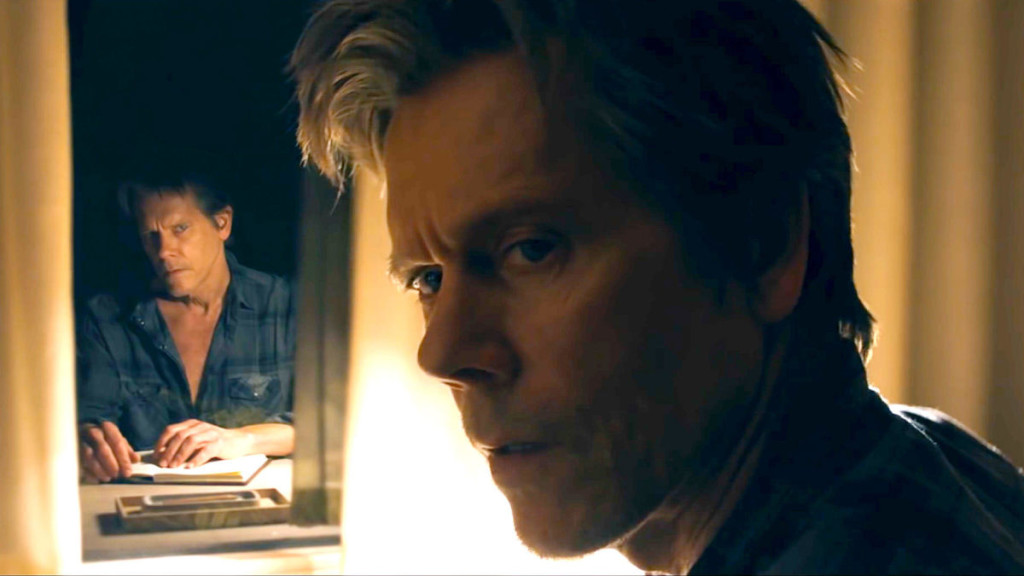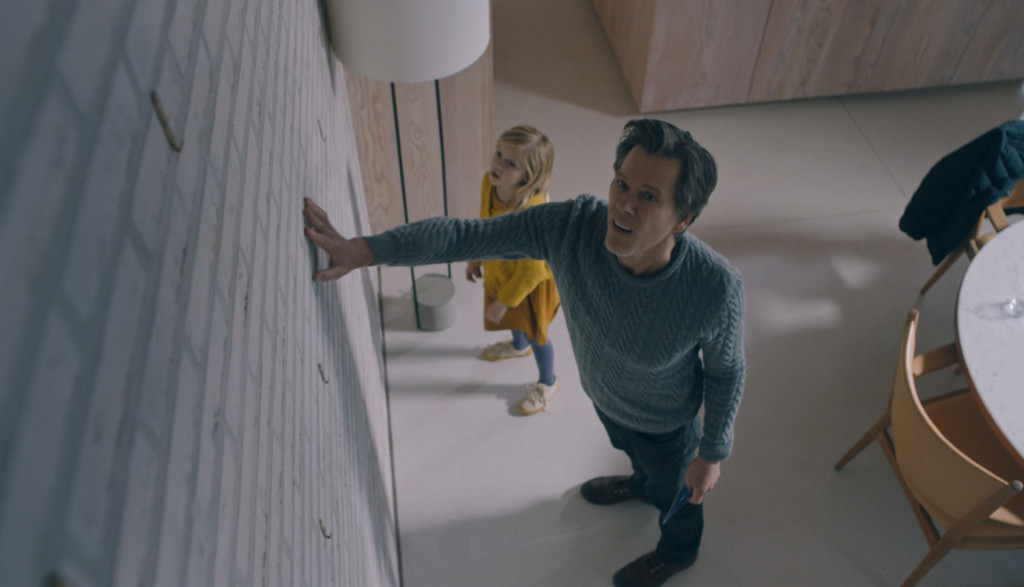You Should Have Left leaves aspiring writers the breadcrumbs for how to write the perfect company man screenplay.
Genre: Horror
Premise: A man accused of killing his ex-wife heads to a brand new Air BnB home in the English countryside with his new actress wife and young daughter. But nothing about this house is what it seems to be!
About: I don’t have the financial documents to prove it, but if I had to guess, David Koepp has made more money on screenwriting than anybody else in history. And yes, that includes Joe Eszterhas. Not only does he have 36 credits, but he’s done tons of uncredited late-stage work on scripts, and that late stage work is where they pay the big money (since they’re hurriedly trying to get the script ready for production). Koepp has had his ups (Panic Room) and his downs (Indiana Jones and the Kingdom of the Crystal Skull) but all in all has had an incredible screenwriting career by any measurement. Koepp teamed up with horror titan Blumhouse on this latest script, which he also directed.
Writer: David Koepp
Details: 90 minutes long
You Should Have Left may be the single best example of what a script looks like through the eyes of the ultimate screenwriting company man.
To the average Joe, this is another mildly amusing haunted house movie. But if you’re a screenwriter, you’ll notice that David Koepp is, intentionally or not, telegraphing the exact formula a screenwriter must use to get a movie made in Hollywood.
You’ve got your single location. A house. Keeps things cheap.
You’ve got your horror genre. Easy to market.
(spoiler) You’ve got dual parts for your lead role. This increases the chances a good actor will want to get on board, which helps with financing.
The hero is tasked with an impossible choice at the end. What will he choose!?
To be honest, it’s a little bit disheartening. Koepp knows the exact formula to get a movie made because he knows the Hollywood system so intimately. But it’s for that very reason the movie feels so uninspired. It was conceived not out of inspiration but rather as a vessel that could be effortlessly sling-shotted through the system.
Contrast this with a movie like Uncut Gems. Uncut Gems is the anti-Hollywood movie and, therefore, should never have gotten made. Which is why it took 20 years. It required its writers to become a hot property in town before they were finally able to get Adam Sandler to look at it and get enough money to shoot the thing.
However, it is a lesson in how Hollywood works. You have a choice, as a screenwriter, to make things easy or hard for yourself. You can go the David Koepp route, come up with something perfectly packaged for Hollywood, get it made quickly, but your movie is forgotten a week after it debuts. Or you can go the Safdie Brothers route and write something you’re passionate about regardless of whether it fits into Hollywood system or not. Of course, as noble as that sounds, you’re going to have to work a lot harder and a lot longer to ever see your movie made.
The generically titled, “You Should Have Left,” follows a former banker named Theo, who has a messy past. How messy? His wife drowned in a bathtub and everyone thought he did it. He even went to trial. But he ended up getting acquitted. Unfortunately, the case made him infamous, giving him minor celebrity status.
This status is what allowed him to meet another “celebrity,” rising actress Susanna. The two make a cute couple. And along with Theo’s six year old daughter, Ella, they’ve got a nice little family going.
When Susanna is scheduled to shoot her next movie in England, they rent a house on Air BnB in the English countryside. The brand new construction is nice enough. But there’s something a little too sparse about it. It doesn’t feel lived in.
When Susanna goes off to shoot her movie, Theo and Ella are stuck in the house alone. And that’s when Theo starts noticing odd things. For example, he’ll explore all the little rooms in the house, only to learn that instead of ten minutes having past, it’s been six hours. Or he’ll notice a door he could’ve sworn wasn’t there before. He’s constantly getting turned around in the house, entering rooms that should’ve been on the other side of the house.
If that isn’t trippy enough, Theo finds out that Susanna has been cheating on him! She’s having an affair with someone from her last movie. He kicks Susanna out of the house for the evening. But that’s when the house starts acting next-level creepy. He and Ella try to escape. But after walking down the hillside, they end up right back at the house again!
What we eventually learn (this is a spoiler if you care) is that the house is Hell. Or, at least, a form of Hell. And it’s punishing Theo because, you guessed it, he did kill his wife. Well, he saw her dying and didn’t do anything. So… he indirectly killed her? Theo even meets the house’s owner, Stetler, who is a stand in for the devil. And Stetler is also… Theo? Or looks like him? Should I even try and save this summary? Nah, we’ll end there.
I’d forgotten when I first started this movie that David Koepp wrote it. But I could tell immediately it was written by a pro’s pro. The dialogue wasn’t just wandering surface level drivel. Everything implied a past, hinted at deeper backstories with the characters. “I think he recognized me,” Theo says about the P.A. when he picks Susanna up from her shoot.
There’s also an early scene where Susanna takes Ella for a walk and Ella asks her why everyone “hates daddy.” Most amateur writers would’ve written this scene back at the house. But Koepp writes the scene with Ella climbing a tree. Susanna worries that Ella is going to fall. And as Ella is asking her questions about Theo, Susanna is begging her to climb down. Adding “agitations” like this into the scene is a nice way to give basic dialogue extra pep.
The problem with this script, though, is that it’s trying to stage a Kardashian level wedding on a Jersey Shore budget.
One thing I constantly drill into your heads is leaning into your concept. Your concept is the one thing that – theoretically – differentiates you from every other movie. If you’ve written A Quiet Place, you want to lean into a lot of scenes where your characters need to be quiet.
You run into a problem with this advice, however, if your concept is weak. Cause now you’re leaning into something that isn’t that interesting in the first place. The “strange attractor” in You Should Have Left is the house. And I’m not clear on what’s unique about the house. It condenses time sometimes. It moves doors around. I’m not seeing a whole lot to work with here.
I’m guessing Koepp thought that all haunted house movies up to this point have taken place in old scary houses. So what if you made a haunted house movie about a brand new house? I suppose you could talk yourself into that being a fresh idea but it’s clear, in practice, that there isn’t enough to work with.
I mean how many times can you show someone walking into a room that they didn’t think was there before?
I feel like Koepp has written in the system for so long that he isn’t able to generate emotion or surprise anymore. He knows how to do everything. And yet, everything he does is so vanilla.
(spoiler) For example, we get this final scene in the film where Theo realizes that the house is Hell. And the reason it brought him here was to keep him here forever for killing his wife. The Devil (Stetson), gives him a choice, though. He can bring his daughter with him so they can be with each other forever.
Technically, this is what you want to do as a writer. You want to give your hero one final impossible choice to make. And what they choose will determine if they’ve overcome their flaw or not. If Theo chooses to bring his daughter with him, it will prove that he’s still the selfish man who let his wife die because he was unhappy in the marriage. If he lets Ella go with Susanna, it means he’s finally accepted what he did.
And yet we feel nothing. I didn’t care if he kept her there or not.
I thought about why that was and that’s when I realized the script made one of the biggest screenwriting mistakes you can make. The main character was passive! He didn’t even have a job, lol. He just wanders around the house waiting for his wife to get back. Why am I going to care what a guy like that decides to do? We only care about “the choice” when we care about the character. And this is a guy we never gave a damn about.
With all that said, I have to say that even at 61 years old (!!!) Kevin Bacon is still a stud. I hope he continues to get leading man roles after this.
[ ] What the hell did I just watch?
[x] wasn’t for me
[ ] worth the watch
[ ] impressive
[ ] genius
What I learned: One thing I HATE is when writers are afraid to make tough choices and they waffle. Theo didn’t *technically* kill his wife?? Give me a break! It’s one of those “have my cake and eat it too” choices veteran writers make who it’s been drilled into their heads a million times “don’t make your hero unlikable.” They want the surprise of him murdering her but they don’t want you to dislike him. So they give the twist a smooth candy coating. He didn’t *physically* kill her. He saw her drowning and didn’t do anything. That’s the weakest “murder” I’ve ever seen. If your hero is going to do something bad, don’t sugarcoat it. Commit to it. We’ll respect you, the character, and the story more.




